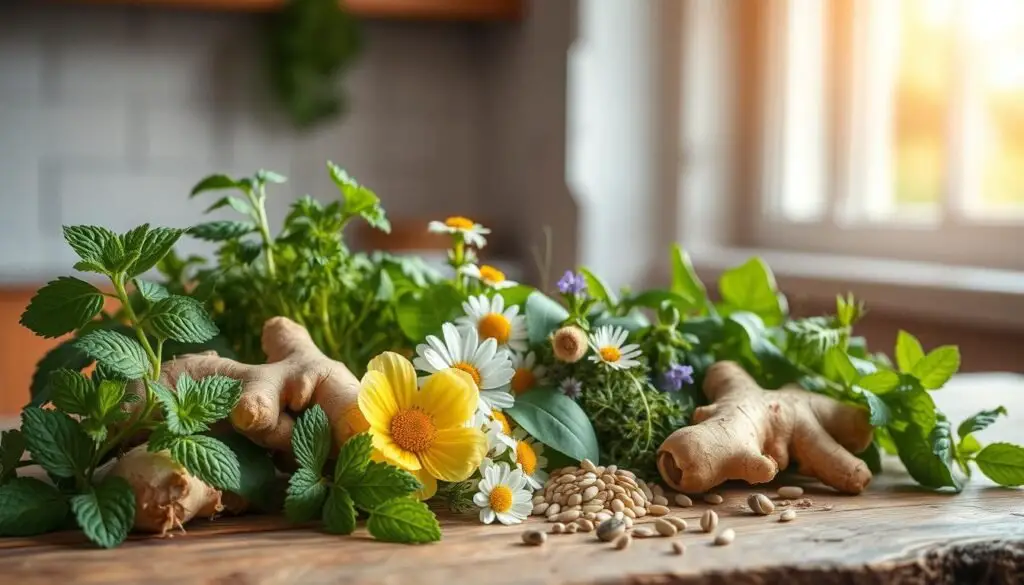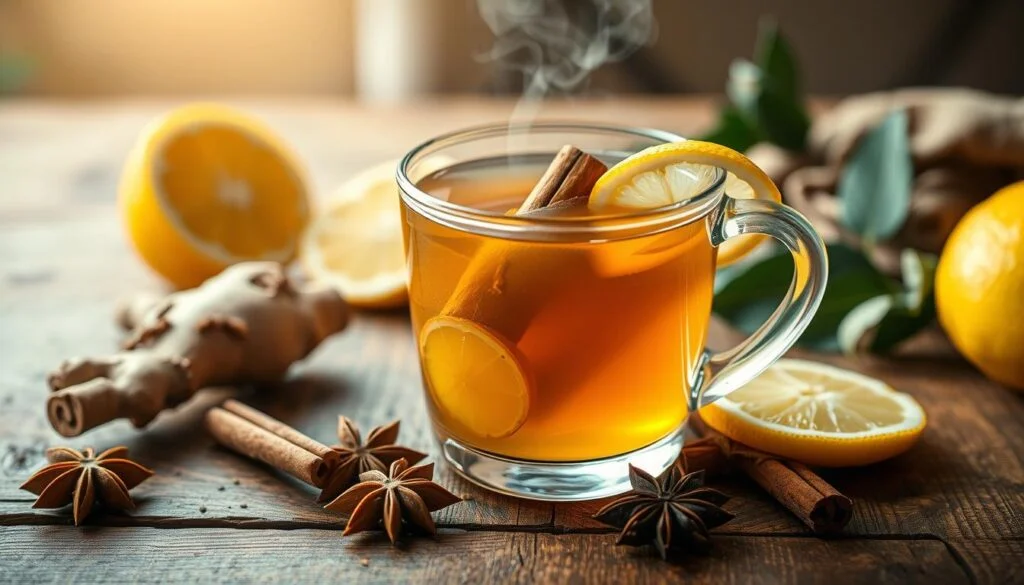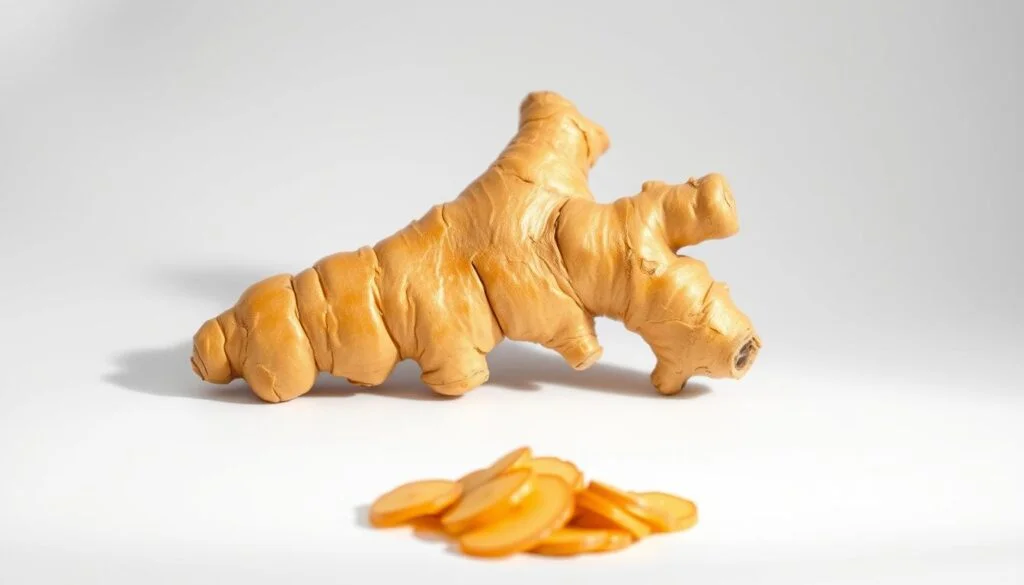Bloating is one of the most uncomfortable states one can experience in a day and for general well-being. The natural solution is a mild one; it eases out bloating and helps in having good digestion.
The use of particular herbs has been a very old practice for calming the digestive troubles. All these mostly unharmed solutions will help in minimizing the pain and making good gut health. Using these remedies can take you a great step toward having a comfortable and balanced system for digestion, as you make it a part of your daily routine.
Certain herbs have been traditionally used for an upset stomach.
These herbs will be a part of your daily routine from now on and hence will make your digestive system healthy.
Proper digestion may help in good health conditions.
These drugs provide the amicable way a la harsh medications.
Comprehending Bloating Toasting to What Is and What Could Never Be
Bloating isn’t just uncomfortable; it’s an indicator of underlying digestive distress. A lot can cause bloating, from one’s manner of eating to hormonal shifts and various health conditions.
Some of the things people most often eat that cause a gassy stomach include beans, cabbage, and broccoli — all foods known to produce plenty of gas! Also, if you happen to eat too quickly, drink soda, or chew gum — bloat! If a particular food causes the problem as in the case of lactose intolerant people it helps to a tremendous extent too.
How Bloating Impacts the Body
Bloating affects the status and causes problems to many people, pain, and even psychologically. Sometimes it’s a case of knowing the causes of bloating – and the right bloating relief to help get on track. For good digestion, one must be aware of the factors thereby achieving efficient relief from bloating.
Peppermint and ginger are well-known carminative herbs
Peppermint and ginger are among the most powerful anti-bloating herbs. Peppermint oil contains natural anti-inflammatories that will help calm down stomach muscle for gas and pain. Ginger aids digestion and is anti-nausea. The two of these together are a powerhouse combo on bloating.
- Peppermint oil capsules may reduce IBS symptoms.
- Ginger tea: digestive without any nausea.

Fennel/chamomile: calming digestive herbs
Digest-friendly, reducing flatulence and bloating, fennel seed applications are a sought-after tradition; chamomile tea use for soothing the stomach and efficacy in getting it relaxed is another often heard application. Together, these two herbs calm and comfort the digestive system.
- Fennel seeds may be used in the form of tea or with food.
- Chamomile tea is also good to calm and can drink at bed times.
Anti-Inflammatory: Turmeric and Dandelion
Turmeric and dandelion are some herbs known for their anti-inflammatory properties in digestion. Turmeric carries the curcumin component, known for a long time to be anti-inflammatory, thus potentially cutting down inflammation in the digestive system. Basically, dandelion root tea detoxifies the liver and supports detoxifying from within the body.
- Turmeric is used as a supplement for inflammation.
- Dandelion root tea supports liver function and helps in whole body detoxification.
Tinctures and Extracts for Quick Relief
Herbal remedies are the use of nature in controlling digestive complaints, and the efficacy of this nature will depend on the manner in which it is applied. Learn therefore how to get the best out of the treatment by learning the different preparations and their applications.
One of the most basic ways to utilize herbs is brewing them in the form of tea. For tummy tea, take 1–2 teaspoons of dried herbs, place them in a cup of boiling water and allow to high for 5–10 minutes. Peppermint, chamomile are among the teas that are very efficient in soothing upset digestion. Filter the tea before drinking it so that you do not drink the herbs.
Use tinctures or liquid extracts for quicker relief. Stronger preparations can be mixed with water or taken sublingually. Usually, 20–30 drops are sufficient for relief. Dosage should be as suggested.
Herbal remedies are quite safe, provided some central precautions are taken with it. Some herbs can interact with drugs or can exacerbate a condition already present. For example, licorice root increases blood pressure in some individuals. A good practice to take a healthcare professional’s opinion before initiating herbal remedies, especially for pregnant or nursing people or people with chronic conditions.
- Peppermint Tea 1–2 cups/day
- Ginger Tincture 20–30 drops
- Chamomile Tea 1 cup before bed
When you know how to make the best of herbal remedies, you can be preventive rather than reactive for your healthy digestive system. You may prepare a tea to ease symptoms or a tincture for quick relief from upset digestion – remedies that can prove effective if correctly and judiciously used.

Conclusion
Understanding the causes of bloating and using the right herbs ensures relief from stomach problems. Peppermint, ginger, fennel, and chamomile are some of the herbs that help reduce bloating and improve digestion.
Taken regularly as teas, tinctures, or liquid extracts, these are a convenient, unproblematic, and agreeable means of supporting digestive health. It was stated earlier that herbal remedies for bloating could be an extremely beneficial way to have a much more solid digestive system.
Studying these homeopathic medications a little more will help us know how we can control and manage bloating and run our digestive system with more efficiency. That would help people take the first step in achieving a more comfortable balanced digestive system: using the right herbs and preparation methods.
The best herbs for bloating: peppermint, ginger, fennel, chamomile, turmeric, and dandelion. These are the very herbs in which nature’s gifts lie for the relief of your digestive struggles and banishing bloat! But how can you put herbal remedies to use for digestion?
Digestive “herbals” generally can be consumed through tea infusion, tincture or extract, or cooking with the herb in food. For instance, mint can be brewed to make a tea that has a calming effect on digestive discomforts; ginger can also be cooked into food to act as an anti-inflammatory.
Are there any safety concerns with herbal treatment?
While Herbal remedies should still be used with caution generally, more so when one is on some medication or has any health condition. Before using a new herb, especially if you have an existing health condition or you are under medication, have a healthcare provider’s opinion. Provision should be made to start with small amounts to ascertain tolerance and watch out for any allergic reactions.
Is there room to consider herbal remedies?
Answer: Indeed, some herbal remedies do carry drug interactions. Although far from a definitive list for example ginger may interact with blood thinners, or turmeric with the medications that treat diabetes. Always see a healthcare provider before using any herbal remedies if you are currently taking prescription medication.
What is the turnaround time to observe outcomes after taking an herbal remedy for bloating?
The period over which results would be noticeable with herbal remedies for bloating varies from individual to individual, as well as from herb to herb. While one person may thus experience relief within hours, others may have to toil for a period of days or weeks before any noticeable relief.
Can I use herbal remedies for bloating if I am pregnant or breastfeeding?
Pregnancy and Lactation: Advise to seek health professional’s advice before using herbal remedies in pregnancy and lactation. Certain herbs are safe like peppermint ginger; and others, the bad herbs will also be determined by the health professional according to their best course of action for a particular situation.


